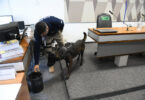Um dos segmentos mais difíceis da indústria do turismo é o mercado infantil e adolescente, no que tange à proteção. Na realidade, esse segmento divide-se em pelo menos quatro sub-segmentos, e cada um deles tem seus próprios desafios e oportunidades.
Embora, na maioria dos países, a lei defina que antes a criança só passa a ser considerada como adulta depois de completar os 18 anos, na perspectiva do turismo, existem grandes diferenças entre uma criança e um adolescente. Essas diferenças se manifestam não apenas na maneira como comercializamos, mas nos produtos que oferecemos. Uma maneira de analisar esse mercado multivariado é dividir o segmento de turista infantil / adolescente em categorias como:
• Viagem com bebês (recém-nascido aos 2 anos de idade)
• Viagem com crianças pequenas: (2-10 anos de idade)
• Viagens de pré-adolescentes: (10-13 anos de idade)
• Viagem de adolescente: (13 a 17 anos de idade)
Essas subdivisões são apenas aproximações e, na realidade, os padrões sociológicos de viagem de cada grupo fundem-se uns com os outros e também diferem uns dos outros. Eles são usados aqui meramente como dividida de forma ilustrativa.
O mercado de viagens para crianças / adolescentes / famílias é grande. De acordo com a (US) Family Travel Association, estima-se que nos Estados Unidos (e podemos presumir que o mesmo vale para muitas outras nações) que as viagens em família potencialmente representam até 35% do mercado total de viagens. Além disso, a maior parte destas viagens são facultativas e muitas vezes as famílias com crianças pequenas e adolescentes tendem a gastar mais durante a viagem do que os viajantes solteiros ou casais que viajam sem filhos, segundo a US Family Travel Association. Existem 4 motivos que justificam o aumento desse mercado, quais são:
• pais ocupados que querem passar mais tempo de com seus filhos e viajar é uma maneira em que eles podem realizar esse objetivo com qualidade,
• A viagem permite que os pais proporcionem experiências educacionais e de melhoria de vida e aprendam em um ambiente diferente da escola e de casa
• Há um número cada vez maior de produtos de viagem para famílias, desde hospedagem a menus de restaurantes e descontos para crianças,
• Viagens de avós e netos produzem memórias de longo prazo através das gerações.
Embora poucos destinos de viagem considerem explicitamente as crianças como motivadoras de viagens (exceções a essa regra são locais como: Anaheim, CA, Orlando, Flórida ou Disney Paris), as crianças desempenham um grande papel nas decisões sobre viagens e destinos de viagem. Por exemplo:
• Fragmentação do mercado. O mercado de menores de 18 anos não é apenas expansivo, mas altamente diversificado. As necessidades de um pai que viaja com um bebê são diferentes de um pai viajando com um adolescente. Se estiver comercializando para uma parte do mercado de viagens da família, pense em qual segmento é a prioridade e, em seguida, atente para esse segmento.
• motivadores negativos. Com algumas exceções, a maioria das decisões de viagem não é feita especificamente a pedido da criança. No entanto, as crianças podem reclamar o suficiente para que os pais decidam não ir a um local específico. Os destinos podem não atrair visitantes devido ao recurso infantil, mas podem perder visitantes devido à falta de apelo infantil.
• Comida. As crianças, especialmente em férias, podem ser um desafio para se alimentar. Muitas vezes eles rejeitam alimentos extravagantes e bons restaurantes. Os destinos turísticos que buscam “mercados familiares” devem oferecer uma variedade de alimentos “simples” ou básicos nas quantidades e porções, a preços acessíveis.
• controle de ruído. As crianças podem ser barulhentas. As áreas de turismo que procuram ser “kids friendly” precisam fornecer espaços onde não se espera que as crianças falem em tom moderado e não incomodem os outros hóspedes. O barulho das crianças pode ser visto como normal ou irritante, dependendo do local e da situação em que são colocados.
• Centros com hospedagem focados nas crianças; Os destinos de turismo familiar precisam refletir sobre os desafios da hospedagem. Estes variam desde proteção em volta da piscina, até espaços para trocas de fraldas e aquecedores de mamadeira facilmente acessíveis. Os locais de hospedagem precisam oferecer uma variedade de serviços exclusivos de atendimento infantil.
• Eventos culturais: As crianças muitas vezes se queixam de tédio e pressionam os pais a deixar um local mais cedo do que os pais preferem. Por outro lado, se as crianças não forem expostas a museus, peças teatrais ou shows, elas nunca aprenderão. Os destinos turísticos que buscam o mercado familiar podem querer considerar não apenas matinês, mas também “part-times” ou outros métodos para lidar com períodos de atenção mais curtos.
Para ajudá-lo a comercializar este importante segmento do mundo das viagens e do turismo, a Tourism Tidbits oferece as seguintes sugestões.
– Entenda o que impulsiona o segmento do mercado de viagens para crianças / adolescentes. Porque este é um segmento tão amplo do mercado de viagens, nenhum destino pode apelar para tudo isso. Segmente seu mercado por atrações, preços e ofertas e, em seguida, apele para a parte do mercado jovem que corresponde à sua realidade.
– O turismo para adolescentes e crianças é multifacetado. Alguns dos esportes mais populares para crianças são parques de diversões, férias à beira-mar, férias inspiradas na televisão e experiências culturais escolares. O último é importante porque ocorre fora da família e geralmente tem um pacote pré-pago como parte da experiência. O mercado de turismo escolar muitas vezes não é reconhecido como uma importante fonte de renda pela indústria do turismo.
– Não negligencie viagens multi-geracionais. Os avós adoram estragar os netos e os aposentados recentes podem ser os grupos mais abastado de aposentados da história. Os avós jovens ainda estão bem o suficiente para a atividade física e têm recursos suficientes para estragar a próxima geração. Desenvolver pacotes especiais de avós / netos. Ofereça quartos de hotel que ofereçam privacidade e fácil acesso e desenvolva horários diferenciados de alimentação e uma alimentação em torno das necessidades dos jovens viajantes.
– Considere as crianças consumidores sofisticados e comercialize com esse foco. As crianças assistem televisão e são experientes na internet. Agregue serviços que atraiam grupos etários específicos. Lembre-se de não generalizar os públicos-alvo. Como as crianças estão cada vez mais expostas a um mundo informatizado, elas estão “amadurecendo” mais rapidamente e estão mais conscientes de tudo, desde o sexo até a política, cada vez mais jovens.







